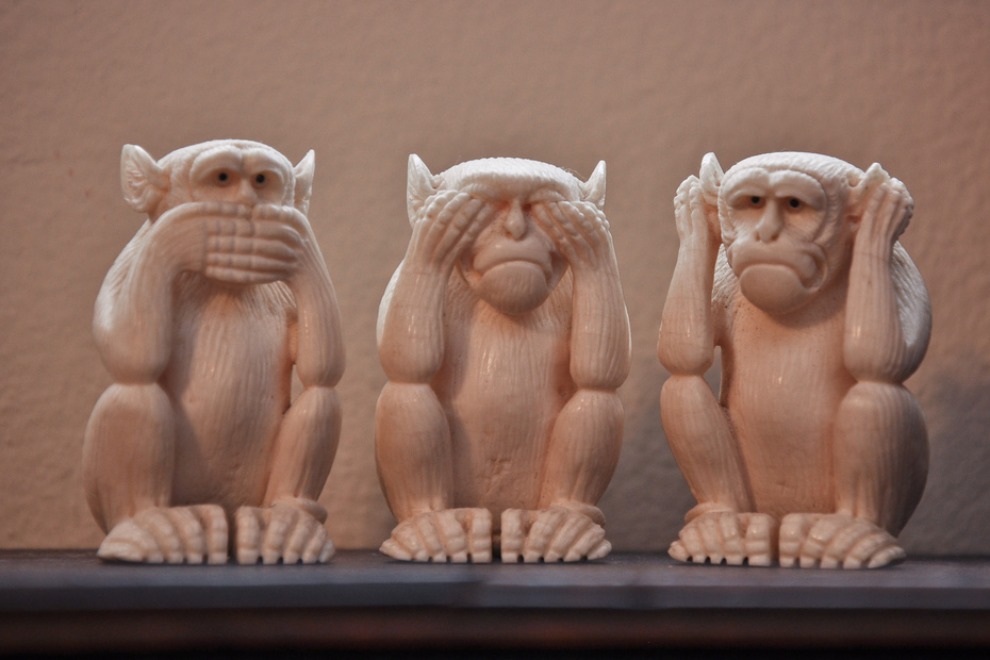Some Indonesians opposed Lady Gaga's scheduled performance, accusing her of being a 'devil worshipper' [EPA] "Little monsters lost to big monsters", wrote an Indonesian television anchor on his Twitter account shortly after Lady Gaga cancelled her biggest concert in Asia, a sold-out event scheduled to take place in Jakarta on June 3.
The pop star's fans, which she affectionately calls her "little monsters", now have to accept that the woman they saw on Indonesian television, or discovered in DVD shops, cannot visit their country because of safety concerns.
Although a small group of Islamic hardliners rejoiced over the news of Gaga's concert cancellation, many Indonesians started to wonder who really has gone gaga here. gguIn fact, this incident does not have much to do with the American singer. Instead, it illustrates a far deeper conflict that is dividing Indonesia.
The Lady Gaga saga started a few weeks ago, after some Indonesians opposed her visit, citing her exposed body parts and "devilish" lyrics.
The pop star soon became the centre of a debate between those who see her as a symbol of freedom, and those who see her as a symbol of evil. The fact that the Islamic Defenders Front (IDF) was successful in repelling her from Indonesia shows that threats of violence can pay off.
"The fact that police can't guarantee security of the concert shows that our state is weak towards groups that promote intolerance, " said Hendardi, head of the Setara Institute for Democracy and Peace. "It's up to the authority of the state to guarantee freedom of expression and security as outlined in our constitution. "
Eroding freedom
In recent years, Indonesia has seen a number of attacks by those who oppose the country's newly regained freedoms. Freedom of speech and freedom of expression only re-emerged in 1998, after longtime dictator Suharto was forced to step down. Many Indonesians, mostly young people, fought hard for these freedoms.
"In our so-called democratic era, religion is used as a political tool to cover up the government's weaknesses like corruption." Many fear those freedoms are now starting to erode.
The downside to the democratic reforms is that they allowed groups that use violence in the name of religion to gain a louder voice in the public space. Some argue that this emerging voice has to do with a weakening government.
Indeed, Lady Gaga was initially refused a permit to perform in the country because the police bowed to pressure. Others describe this refusal as evidence of extortion, a democratic system strained by intimidation and fear. In addition to the police extortion, the majority of the more than 200 million Muslims in Indonesia chose to keep silent on the whole affair, fearing for their safety.
Musdah Mulia, from the Indonesian Conference on Religion and Peace, said she has lost faith in her country. "This shows how our reforms after 14 years have failed. During the Suharto era, the military ruled. Now, in our so-called democratic era, religion is used as a political tool to cover up the government's weaknesses like corruption," Mulis said.
Exact numbers are unknown, but it is estimated that the IDF, along with with other similar groups, only make up around one-tenth of the Indonesian population. Though a minority, they managed to gain a huge influence on the nation because of their violent actions and threats.
Local authorities stopped issuing permits for churches after the groups loudly and violently opposed them. Christian congregations are forced to hold their services on public roads because they are not allowed to build a church.
Terror tactics
Members of the Islamic sect Ahmadiyah, an Islamic reformist movement, have faced serious restrictions since the IDF launched a campaign against them. In February 2011, three members of the sect were publicly butchered to death in the town of Cikeusik.
The IDF has managed to bring a hardline conservative element to a country that has historically been known for its plurality. Interestingly, there are reports that the IDF often refrains from terrorising groups when they pay them a sum of money. This is a public secret: the IDF and other similar groups are founded by former police and army generals to be used as thugs for hire.
An earlier Al Jazeera investigation found that the groups still had ties with retired generals who were using them to put political pressure on the government. Now that the 2014 election season has started, it is not surprising that the IDF is loud and active again.
Patience, however, seems to be running out.
The silent majority is less quiet. Leaders of the IDF were prevented from entering a town in Kalimantan after traditional Dayaks, the indigenous population of Borneo, prevented the group from landing their aircraft.
A movement on Twitter has been calling on the government to ban the IDF. Recently, a member of the IDF was murdered by someone who disagreed with its extremist positions. As the population increasingly takes matters into its own hands, the government can no longer hide behind the argument of democracy.
The Lady Gaga saga has ended with the pop star herself writing on Twitter: "There is nothing holy about hatred." Many Indonesians believe it is this "hatred" that the government should be most worried about.

Comments